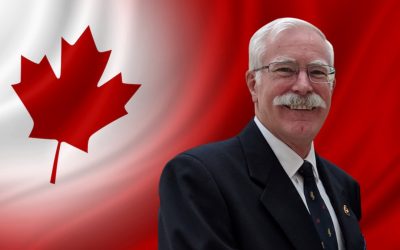RELIEF COULD be in sight for homeowners struggling to pay their rising rates, if new laws to cap bills are approved by parliament.
And insiders say the new rules could mean councils will have to hold a referendum whenever they want to increase rates beyond the level of inflation.
Local authorities nationwide collect around $2.5 billion in rates each year, money which is spent on everything from sewerage and road repairs to swimming pools and libraries.
Rates rose 6% on average across New Zealand in the 2007/08 financial year, well above the 4% rate of inflation. This year, rates rises in some parts of the country have hit double digits. Nelson’s climbed 11.95% and Palmerston North’s were up 11.3%. Auckland, Christchurch and Wellington saw climbs of just over 5%, while councils in Invercargill, Southland and Buller demanded around 6% more than the year before.
The proposal to cap rates will be formally announced over the next few months as part of a major shake-up of the Local Government Amendment Act 2002 by Local Government Minister Rodney Hide.
Hide told the Star-Times that double-digit rates increases were “not defendable”.
David Thornton, founder of the NoMoreRates lobby group, says the proposal is “fantastic”. He says Hide almost managed to pass a similar bill three years ago “but Winston Peters’ lot voted against it”. Now, Thornton thinks there’s a good chance the bill will become law.
“People are crying out for control on ratings increases.”
Thornton says New Zealand might follow America’s lead: more than half the US states use a system where property taxes (the equivalent of rates) are capped at the cost of living plus an increase based on population growth.
“If you wanted to increase it by more than that you have to have a referendum. That sort of system would certainly work in New Zealand.
“What councils do here is decide how much they want to spend, and go out and collect rates to cover that amount. What they do in these American states is they’re told how much money they’ve got and then they spend within that limit.
“If anything critical comes up, they say to the people, `Look, we must do this new sewer system’. And they put it to the people. If the people vote yes, they can do it. But if the people vote no, they can’t do it.”
Mike Reid, manager governance for Local Government New Zealand (LGNZ), says its stance will depend on the fine print in any bill, but he is not convinced that rates increases are a major problem.
On average, says Reid, rates take up 4% of household income, while taxes set by central government suck up about 40%. When looking for savings, he says it makes sense to be looking at those central government taxes first.
Reid says many rates are increasing at below the rate of inflation, and the average per household is between $1500 and $1800 per year. This, he says, is “remarkably cheap” by international standards.
“The critical pressure that puts rates up is the cost of building roads… If you want your infrastructure updated and replaced, it costs money.”
Hide’s push for controls on rates comes as the Star-Times reveals figures showing large increases in management salary costs for councils around the country. A report by local government finance and policy analyst Larry Mitchell shows management salaries in the 73 city and district councils surveyed rose 14.4% to $93.42 million from 2007 to 2008.
Last week data analysis firm Dun & Bradstreet released a study showing 20% of New Zealanders have delayed paying their rates bill in the past 12 months. The study found that for many New Zealanders, keeping cash for daily needs outweighed any concerns over late bills payments.
Hide’s move to control rates is his first attempt to wield a stick over councils since being made local government minister. While Hide’s Act Party extracted coalition promises from National to look at capping central government spending, he will have to sell the case for doing the same to council rates on its merits.
But some of Hide’s moves to reduce council costs may not be good for the environment air and water quality standards are also on his hit-list.
Government officials are calculating the costs to councils versus the benefits. Hide said “very, very expensive” water standards were driving up rates in rural areas.
But Greens co-leader Russel Norman said councils such as Environment Canterbury had made huge progress improving air quality. Central government should pay councils to keep these standards not drop them.

